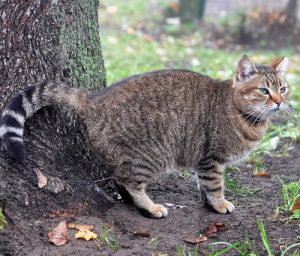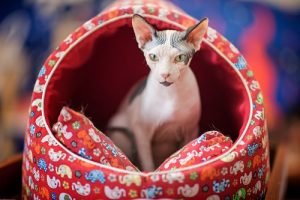Get ready to discover yet another food item for your kitty. Can Cats Eat Beans? Read this article to know more.
Are you tired of feeding your kitty the same old cat food every day and looking for some variety in its diet? Well, look no further than your pantry! You might be surprised to know that beans, those tiny little powerhouses of nutrition, can be a great addition to your cat’s meals. Before you start pouring a can of beans into your kitty’s bowl, let’s find out if they are safe for cats to eat. In this article, we will answer the question: Can Cats Eat Beans? So, hold on to your hats because things are about to get exciting!
Can Cats Eat Corn? Find out here
What Are Beans?

Beans are a type of legume that are commonly consumed in various cuisines around the world. Rich in nutrients, they come in a variety of shapes, sizes, and colors. Some of the most popular types of beans include black beans, kidney beans, pinto beans, chickpeas, and navy beans.
Can Cats Eat Beans?
So, Can Cats Eat Beans? Yes, cats can eat some types of beans in moderation. However, it is important to note that not all beans are safe for cats to eat, and some can be toxic.
It is important to choose the right type of beans and prepare them properly to avoid any potential digestive issues or health problems for your furry friend.
Are Beans Toxic For Cats?
Some types of beans can be toxic for cats. For example, uncooked or undercooked beans contain lectins that can cause gastrointestinal upset, including vomiting and diarrhea, in cats.
Additionally, certain types of beans, such as baked beans, may contain ingredients that are harmful to cats, such as onions or garlic. Therefore, it is important to prepare beans properly and avoid certain types of beans when feeding them to your cat.
Do Beans Contain Any Nutritional Value For Cats?

- Protein: Beans are a good source of protein for cats, which is important for maintaining muscle mass and strength.
- Fiber: Beans are high in fiber, which can help regulate digestion and prevent constipation in cats.
- Antioxidants: Some types of beans, such as black beans and kidney beans, are high in antioxidants, which can help support a cat’s immune system.
- Vitamins and Minerals: Beans contain vitamins and minerals that are important for overall health, including iron, potassium, and folate.
How To Feed Beans To Cats?
- Cook beans and mash or puree them before serving.
- Mix the unseasoned beans puree with other cat-friendly ingredients. Beans should not make up the majority of a cat’s diet, so it’s important to mix them with other ingredients like cooked vegetables or meat.
- Serve in small quantities. While beans can provide nutritional value, they should be served in small quantities as a treat rather than as a staple in a cat’s diet.
- Monitor your cat’s reaction. If you notice any adverse reactions, like vomiting or diarrhea, stop feeding the beans immediately and consult with your veterinarian.
A Few Concerns
- Beans can be difficult for cats to digest because of their high fiber content.
- Beans can contain lectins and phytates, which can be harmful if consumed in large quantities.
- Some beans, such as raw kidney beans, can contain toxins that are harmful to cats if not cooked properly.
- Beans may also cause gas and bloating in cats, leading to discomfort and possible vomiting or diarrhea.
Something Important!
- Beans can be a good source of plant-based protein for cats, but they should only be given in moderation and as part of a balanced diet.
- It is important to choose the right type of beans to feed your cat and ensure they are cooked properly to avoid any potential harmful effects.
- If you want to feed beans to your cat, make sure they are thoroughly cooked and preferably mashed or blended to make them easier to digest.
- It is also important to introduce any new food to your cat slowly and in small quantities to avoid digestive upset.
Can Cats Eat Beans? Quick Takeaways!
- Cats can eat beans, provided they are fed in moderation and with care.
- Raw beans and beans with seasonings or additives can be toxic for cats.
- Beans do not provide any significant nutritional value to felines. So, if your cat does not like eating them, do not try to force-feed.
- If you notice an adverse reaction in your cat, consult a doctor.



